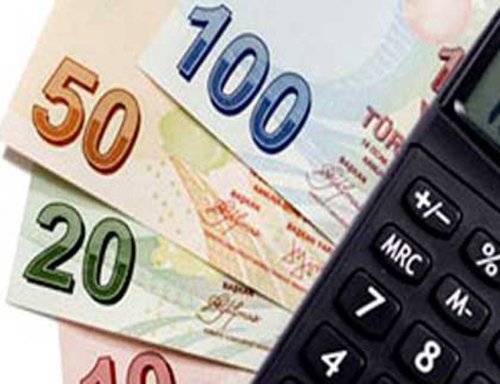TEPAV: “Primary Budget Expenditures Did Not Fall Back Down to the Pre-crisis Level” The assessment stressed that a significant proportion of the current account deficit resulted from the savings gap of the public sector, confirming the need for a change in public expenditure policy.

ANKARA – TEPAV stated that primary budget expenditures which grew along with the crisis did not fall back to the pre-crisis levels yet.
Fiscal Monitoring Report April-May 2011 Budget Implementation Results by TEPAV Stability Institute was published.
The report involved a section titled, “Assessment of the Primary Budget Expenditures”. The assessment said, “Although the ratio of budget deficit and domestic debt to the GDP is yet not at a level that might affect macroeconomic stability, primary budget expenditures indicate that expenditures which grew along with the crisis did not fall back to the pre-crisis levels yet.”
Stressing that expansionary fiscal policy that was correctly introduced to stir the economy, which, coupled with low – or negative – economic growth, caused a substantial increase in primary budget expenditures, the report said:
“Nevertheless, this outlook must be reversed with the rebalancing of the economy after the recession. The most striking factor is that primary budget expenditure which, increased between 2004 and 2008 when high growth was observed only slowly elevated rapidly after the crisis and did not yet fall back to the pre-crisis level. This level could not be attained even in 2010 and 2011 when record-high growth rates were achieved which might be the indicator that necessary fiscal measures were not implemented. Another striking point is the continuous increase in primary budget expenditures in real terms. Therefore, although the high growth in 2010 and the 2011 program enabled a reduction in the primary budget expenditure/GDP ratio, the said expenditures continued moving upwards during both 2010 and 2011.”
The report said that, the outstanding item under budget expenditures was compensation of employees which was seen to have increased substantially. The increases in this item, which was relatively less flexible and thus harder to reduce, were critical. Since 2007, compensation of employees had growth at a rate higher than GDP growth, except 2008.
Current transfers, one of the most important expenditure items, had demonstrated a similar outlook, all of which implied that measures to cut down budget expenditures were necessary. The assessment continued: “Given the fact that a significant proportion of the current account deficit results from the savings gap of the public sector, the need for a change in public expenditure policy becomes clearer.”
Table: Primary Budget Expenditures
|
|
Primary budget expenditure/GDP (%) |
Change in primary budget expenditure (Real) (%) |
|
|
|
2003 |
18.2 |
-1.2 |
|
|
|
2004 |
17.1 |
2.8 |
|
|
|
2005 |
17.6 |
11.3 |
|
|
|
2006 |
17.4 |
6.1 |
|
|
|
2007 |
18.4 |
10.7 |
|
|
|
2008 |
18.6 |
1.4 |
|
|
|
2009 |
22.6 |
15.8 |
|
|
|
2010 |
22.2 |
7.2 |
|
|
|
2011-Program |
21.5 |
2.1 |
|
- Fiscal Monitoring Report 2011 April May Budget Implementation Results
Related Publications
- Fiscal Monitoring














